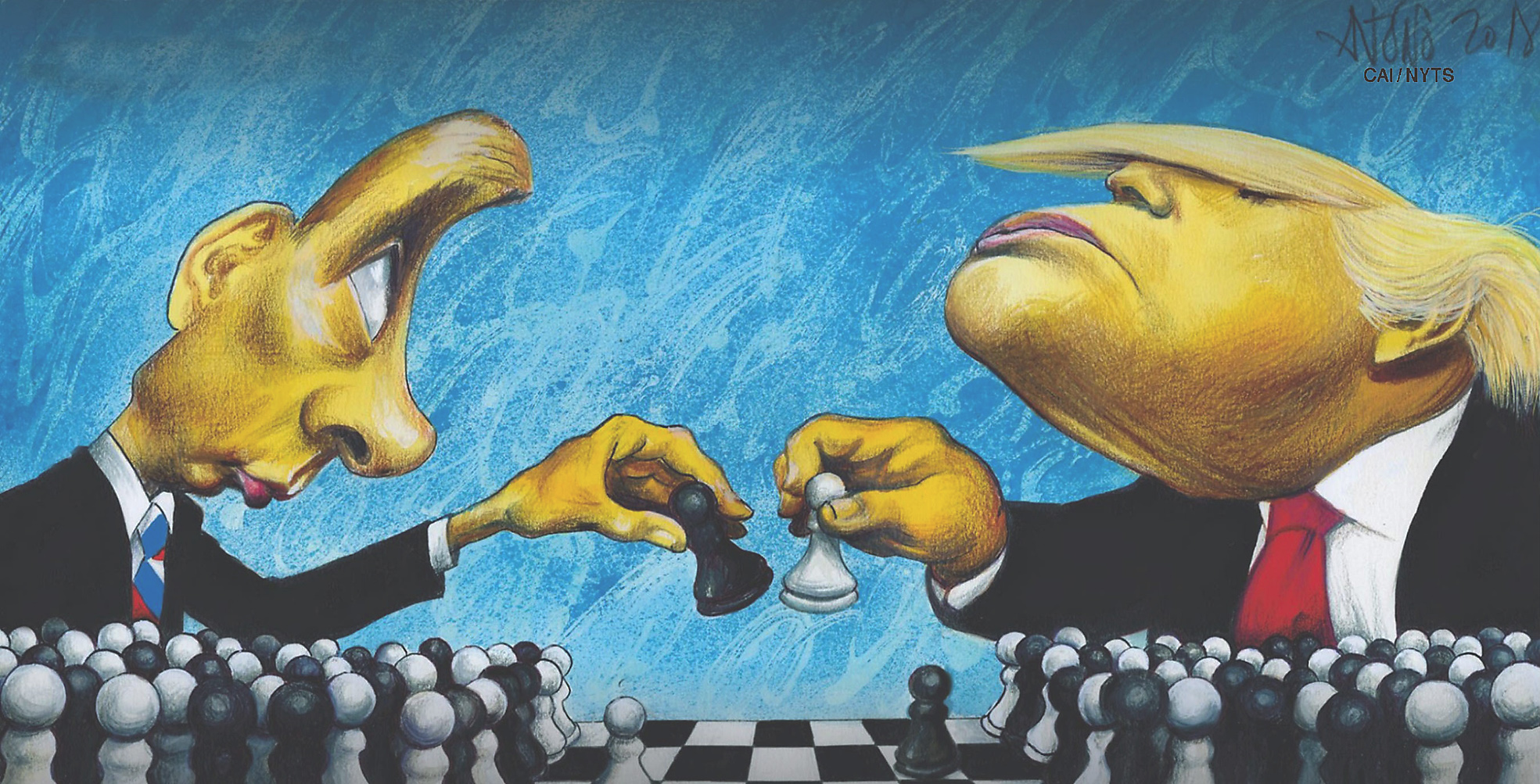At a summit with U.S. President Donald Trump in Helsinki earlier this month, Russian President Vladimir Putin proved that he remains a master of the tradecraft he perfected in the 1980s as a Soviet operative in East Germany. Trump wilted under Putin's impassive KGB-trained gaze.
After the summit, Trump declared that he trusted Putin's assurance that Russia had no reason to meddle in the 2016 U.S. presidential election. The statement, which contradicted U.S. intelligence agencies, was quickly condemned by many in the U.S. security establishment, U.S. Democrats and even some Republicans. Paul Ryan, the Republican speaker of the House of Representatives, said that Trump "must appreciate that Russia is not our ally." Some went so far as to call Trump's behavior "treason."
Trump, as usual, quickly backtracked, claiming that he had misarticulated a "double negative." "The sentence should have been, 'I don't see any reason why it wouldn't be Russia,'" he asserted. But then, in another characteristic move, Trump hedged his correction: "It could be other people also. There are a lot of people out there." Now Trump says that if Russia does meddle again, it would be to support the Democrats.


















With your current subscription plan you can comment on stories. However, before writing your first comment, please create a display name in the Profile section of your subscriber account page.